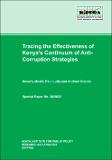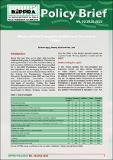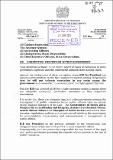| dc.description.abstract | Corruption persistently and relentlessly remains a challenge in Kenya with a huge
cost to the economy. It is a hindrance to good governance and inflicts substantial
economic costs such as misappropriation or loss of public funds and livelihoods.
Kenya’s rating on the Corruption Perception Index (CPI), for the past 20 years,
continues to remain low, ranging from 19 points (lowest) to 28 points (highest),
out of the possible 100 points.
In addition, Kenya scores very low on the Worldwide Governance Indicators
(WGI), in Sub-Saharan Africa. These governance indicators are the measure of
a government’s effectiveness in the fight against corruption. These indicators are
government effectiveness, political stability, regulatory quality, rule of law, voice
and accountability, independence of the judiciary, accountability of the public
service, application of credible sanctions, freedom of expression, freedom of the
media and satisfaction with poverty reduction.
Anti-corruption initiatives in Kenya date back to the colonial era, when the Kenya
Prevention of Corruption Act (Cap 65) was enacted in 1956. The Act prescribed
actions and offences that amount to corruption, such as corruption in office
(behaviour), corrupt transactions with agents and public servants obtaining
advantage without consideration, and prescribed penalties therefor. | en |



